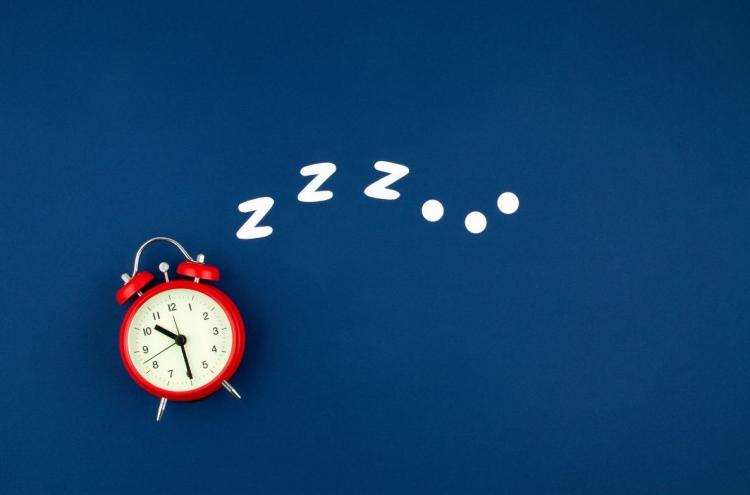Researchers in the Iliff Lab focus on the known clinical association between dementia and poor sleep quality, such as sleeping very short or very long nightly durations.
Their latest findings emerging from an analysis of data from the Seattle Longitudinal Study (SLS), adds a new puzzle piece to their knowledge about the link between sleep and dementia risk. The study preprint is posted on PubMed.

Jeff Iliff, PhD
The Seattle Longitudinal Study, run out of the UW Department of Psychiatry and Behavioral Sciences by Sherry Willis, PhD and the late Warner Schaie, PhD, followed the cognitive functioning of 6,000 participants from young adulthood to old age, in waves of enrollment starting in the 1956. Since 1993, the participants also completed a health behavioral questionnaire, which included a question about average nightly sleep duration, every 3-5 years.
Because of the way the SLS team collected repeated measures of sleep duration over decades, researchers can now go back to this data ask newly emerging questions about self-reported sleep and cognitive health.
“People tend to sleep less as they grow older,” says Jeff Iliff, PhD, UW professor of psychiatry and behavioral sciences and neurology. “So, our initial thought was to look at the slope of that decline in sleep with aging. For example, going from sleeping 8 or 9 hours a night in midlife, to sleeping 5 or 6 hours later in life—maybe that slope is what confers a risk of cognitive impairment.”
The team did not find this association when the Iliff Lab’s postdoctoral fellow Samantha Keil, PhD, analyzed data on cognition and sleep duration collected over 25 years on 1,104 adults, aged 55-100, who were participants in the SLS.

Samantha Keil, PhD
In their statistical model, Keil found that the variability, or change in sleep duration across the time measurements, showed a significant relationship with cognitive impairment.
A “variable” pattern of sleep duration, in this study, would be a participant who reported 8 hours, then 9, and then 6 hours, when assessed at the 3-5 year intervals, for example, instead of 6 hours, 6 hours, and 6 hours.
“Because SLS gives us a longitudinal dataset,” says Iliff, “we were able to find that sleep variability wasn’t just associated with cognitive impairment, it actually predicted who was going to cognitively decline over that time period. So, a pattern of sleep variability is a prospective predictor, which is pretty interesting,” says Iliff.
These findings shouldn’t worry someone who’s had a bad week or month of sleep here or there, according to Keil. “Whether or not you as an individual are a short or long sleeper in duration, if your baseline sleep is suddenly shifting quite significantly, that’s something to watch,” she says.
As a next step, the Iliff Lab researchers want to know more about what factors contribute to sleep variability. A new member of the Iliff Lab, sleep physician Yeilim Cho, MD, is now working to understand the characteristics of the people who had variable sleep in this study population. Health information gathered in the SLS included factors such as diabetes and hypertension status, diet, alcohol and tobacco use, and marital and family status.

Yeilim Cho, MD
In another follow-up study, Keil will evaluate the hundreds of longitudinal MRI brain scans available from the same group of SLS participants. She is interested to know if sleep variability is associated with any known imaging markers of impaired clearance of brain waste, a potential Alzheimer’s risk factor.
Iliff hopes to be able to continue learning from SLS participants, in future studies of sleep using objective measures of sleep tracking. “These are very, very committed participants,” says Iliff. “They’ve put in a lot of work. They are exactly the population of people that we want to be studying moving forward.”
UW ADRC Director, Thomas Grabowski, MD, UW professor of radiology and neurology, thinks that these findings and follow-up studies reveal the unique value of the SLS cohort. “It’s rare to have studies where people are enrolled significantly younger than mid life, and are followed systematically over time, with neuropsychological and social developmental measures, as well as imaging measures. The SLS provides the opportunity to look at the trajectory of their cognitive development and decline over time. That makes these participants super valuable for studies of Alzheimer risk and resilience to disease.” • Genevieve Wanucha
Read about the Seattle Longitudinal Study, written by SLS Principal Investigator, the late K. Warner Schaie, PhD, UW affiliate professor of psychiatry and behavioral sciences.
Citation:
Keil SA, Schindler AG, Wang MX, Piantino J, Silbert LC, Elliott JE, Lim MM, Thomas RG, Willis S, Iliff JJ. Instability in longitudinal sleep duration predicts cognitive impairment in aged participants of the Seattle Longitudinal Study. medRxiv [Preprint]. 2023 Jun 12:2023.06.07.23291098. doi: 10.1101/2023.06.07.23291098. PMID: 37398317; PMCID: PMC10312848.





